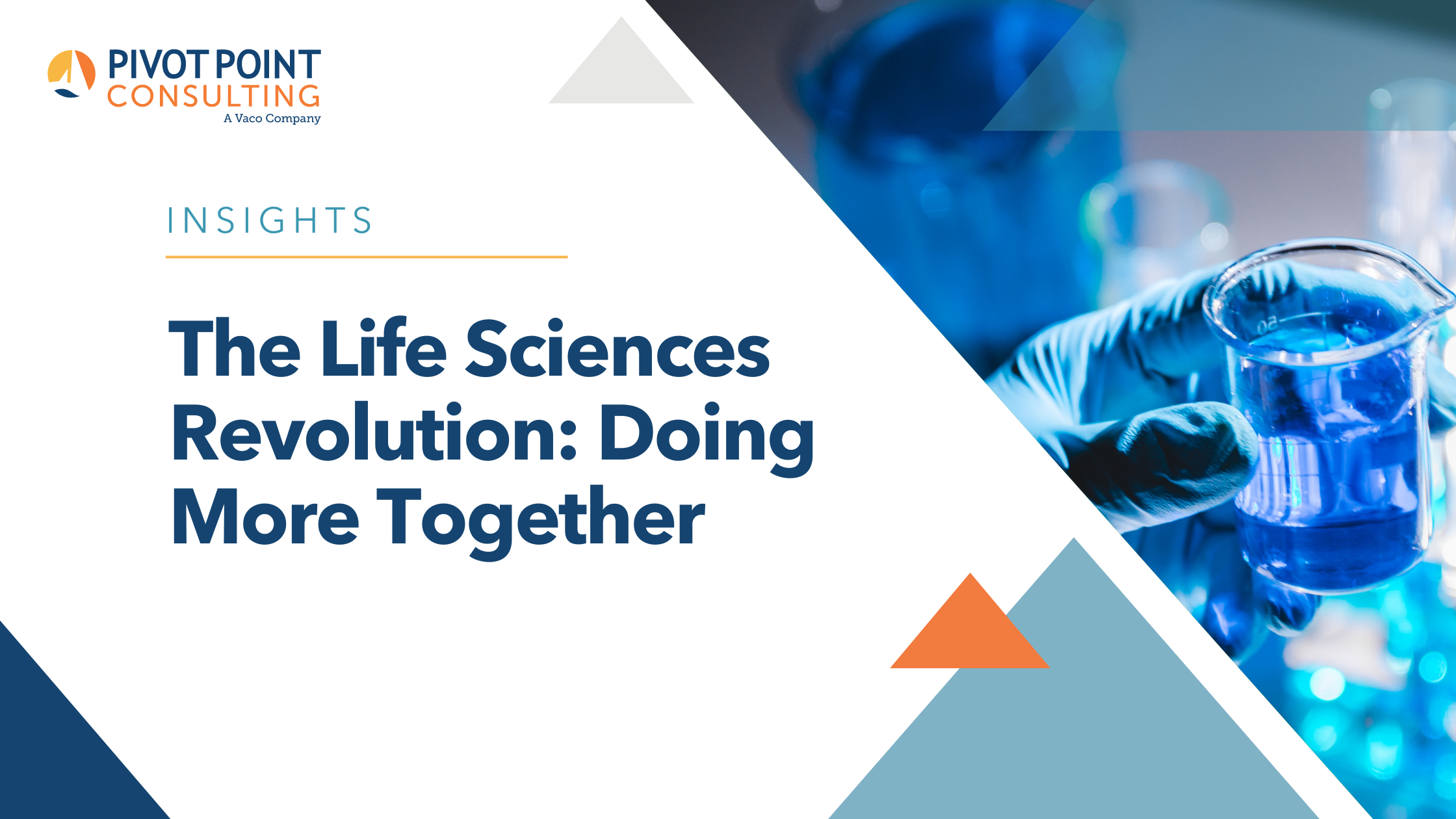One of the less-publicly discussed, but clearly impactful, outcomes of the pandemic has been a greater appreciation for the value, expertise and partnership potential of life sciences organizations–particularly in pharmaceutical, medical devices and research. As more novel, life-saving therapies are designed every day, the challenge often shifts to quickly identifying and triaging the right patient to the right therapy for the right outcome.
While most EHR systems have tremendous power to identify and manage these populations of patients, there is still significant heavy lifting required by IT departments, clinical informaticists and data analytics team members to build registries, reports and workflows in support of ever- expanding patient care programs that these novel therapies help to drive.
Healthcare providers, who once viewed life sciences organizations as threats focused on profit and patient data, now recognize the strategic value these large, multibillion dollar research and development entities offer in accelerating the adoption of cutting-edge technologies and best practices in healthcare.
In conversations with health system executives, life sciences key opinion leaders and EHR vendors, there is a renewed appreciation for collaborative efforts. Life sciences firms bring cutting-edge clinical algorithms; EHR vendors contribute functional capabilities; and healthcare providers offer real-world workflow expertise. Together, they can create and evangelize integrated workflows that more proactively and predictively address local community needs.
Abbott Lab’s InView EHR offering is a great example of a life sciences organization leading the way. InView leverages the inherent patient identification and analytics capabilities of EHR systems like Epic and Cerner and combines the latest clinical best practices and workflow design.
This creates actionable, real-time, point of care workflows to drive patients to the appropriate clinical provider and assesses both population level and individual patient health status.
Fully customizable to the IT environment of each center, Abbott’s InView EHR, powered by Pivot Point Consulting, is an integrated solution that enables the management of panels of patients, supports efficient triage along the care continuum and leverages existing capabilities to deliver accelerated outcomes. Dr. Jason Guichard from Prisma Health, one of the early champions of this program, shared outcomes, including their UNIVANTS Award for Healthcare Excellence, on the Between Two Ventricles podcast.
Not only is the focus in life sciences being driven by medical devices and pharma, but it’s also led by the EHR vendors who see tremendous opportunity to leverage insights and partnerships to better inform clinical content, decision support and research. One exciting example is Epic’s Cosmos, a database for de-identified patient research that currently has Epic EHR data for over 122 million patients.
The goal of Cosmos is not only to provide a powerful new research platform that can be leveraged by the research teams at healthcare provider organizations, but also to enable better care decisions at the bedside.
“The concept that we have built around Cosmos is what we call self-service analytics, meaning that the big data in Cosmos is set up to be accessible to any user of Cosmos,” said Dave Little, MD, a clinical informaticist at Epic, in a February 2022 interview with EHR Intelligence. Epic also regularly publishes and shares learnings from the Cosmos platform with their clients, including providing real-time insights during the COVID-19 pandemic.
Cerner (Oracle Health) also has a dedicated team and planned efforts around life sciences called Cerner Enviza, which Oracle Health describes as a unique collaboration between life sciences organizations, health systems and activation collaborators to help bring clarity to scientists and researchers in the moments that matter.
The Enviza platform currently has over 100M patient records and is focused on drug/therapy development and commercialization, which may be of interest to life sciences organizations looking to use EHR data to design and develop therapeutic solutions more rapidly. Cerner Enviza will “arm researchers with diverse tools and datasets” as they use de-identified data and real-world evidence, according to Oracle Health CEO, Dr. David Feinberg. Enviza builds off of Cerner’s April 2021 acquisition of Kantar Health, leveraging the combined power of an AI analytics tool with Cerner’s rich EHR dataset.
Other players in this space to keep an eye on are cloud hosting and technology enablement partners such as Amazon / Amazon Web Services and their dedicated Life Sciences on AWS and AWS for Health offerings for healthcare provider, payor and life sciences partners. Per Amazon, “life sciences organizations rely on AWS to enhance data liquidity, optimize for operational excellence, personalize customer engagement and raise the bar on security and compliance. The life sciences team at AWS is comprised of seasoned industry experts who bring hands-on experience from previous roles within pharma, medical device, biotech and government health and regulatory organizations.”
AWS’ life sciences offering seeks to combine their hosting solution, integrated partnership network and strategic consulting solutions offered via certified partners, like Pivot Point Consulting, to deliver accelerated products, services and capabilities to the healthcare provider and life sciences therapy development domains.
Pivot Point Consulting is excited to partner with leaders like Abbott Labs, Novartis, Johnson & Johnson and Astellas to leverage the combined power of healthcare providers, payors and life sciences partners to use data, technology and the latest medical science to accelerate improved, cost-effective, efficient outcomes.


